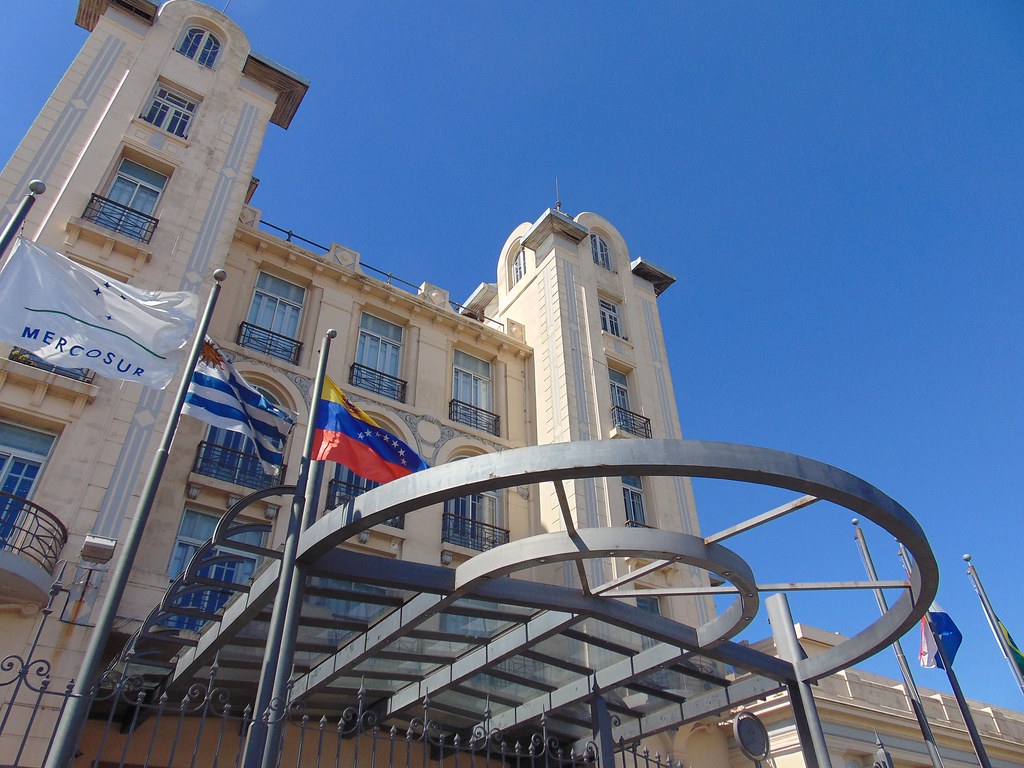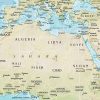Over the last few years, the EU’s influence on the global stage has been undermined by a number of developments. Two of them merit special attention: (1) Europe’s economic and financial crisis, and the concomitant political crisis within the EU; and (2) the decision of the Obama Administration to shift its foreign policy priorities towards the Asia-Pacific region. One obvious way for the EU to try to mitigate these two problems is to tap into the economic and geo-political potential of the broader Atlantic Basin. In this vein, the EU has been negotiating a Free Trade Agreement (FTA) with the US for some time, the so-called Transatlantic Trade and Investment Partnership (TTIP). Admittedly, Donald Trump’s election as President of the US represents a serious setback for TTIP. However, if the EU and US managed to weather future complications and reach a reasonable agreement, this could create a truly transatlantic market, with the potential of playing a pivotal role in global trade. Moreover, and given that Canada and Mexico enjoy close trade ties with the US –through the North American Trade Agreement (NAFTA)–, the EU has found it convenient to negotiate separate FTAs with these two countries. The FTA with Canada was signed last October, despite some controversies during the ratification process within the EU. The FTA negotiations with Mexico are still ongoing.
“An FTA with Mercosur […] would boost the EU’s economic position in Latin America”
It is in this broader context of tapping the economic potential of the Atlantic Basin that we must understand the EU’s efforts to reach an FTA with Mercosur. Should this agreement be concluded successfully, the EU will have FTAs with most countries in the Americas, with the exceptions of Cuba, Venezuela and Bolivia. This would boost the EU’s economic position in Latin America, especially in relation to other great powers like China. While China has been very active economically in Latin America, its presence there revolves mainly around raw materials. However, China has recently shown interest in an FTA with Uruguay, which could constitute a foundation for a broader process aimed at striking a more comprehensive economic relationship with Mercosur as a whole.
The first EU-Mercosur agreement –the Interregional Framework Cooperation Agreement– was signed in 1995, but it did not come into fruition until 1999. Following successive (failed) attempts to reach further agreements, the EU and Mercosur began getting more serious about an FTA in May 2016. EU Trade Commissioner Cecilia Malmström has stressed the strong determination from both sides to reach an agreement. Federica Mogherini, European Commission Vice-President and EU High Representative for Foreign Affairs and Security Policy, has also shown her strong support recently, by noting in an official visit to Argentina last March that ‘interregional connections are the future’. This time around, however, it was Mercosur that initiated the process, not least due to the interest expressed by the new Argentine administration. During a recent visit to Brussels, Argentine President Mauricio Macri made a public demonstration of his own personal commitment to furthering economic ties between the EU and Mercosur, by pointing out that ‘The European Union and the Argentine Republic have been working intensively together over recent months to give a new political impetus to our longstanding bilateral relations… We are happy we have built an ambitious renewed agenda based on our common understanding of the challenges and opportunities our societies are facing in a globalizing world’.
This new EU-Mercosur FTA would be a ‘first generation’ trade agreement, and could bring significant economic advantages for both sides. At present, the aim is to wrap up the most complicated parts of the negotiations by the end of 2017 (before the dissolution of the Brazilian Congress in 2018), and to conclude the agreement before the 2019 European parliamentary elections. A key element will be a reduction of trade tariffs, which remain very high. EU companies still pay €4 billion in tariff duties each year when exporting to Mercosur countries. The EU economy is heavily dependent on exports, and Mercosur is the EU’s 6th most significant market destination (in 2015 the EU-Mercosur trade in goods accounted for €88 billion). One important reason why Mercosur is particularly interested in the agreement is that the EU has already signed FTAs with Canada, Australia and New Zealand, which are major agricultural exporters –agriculture and raw materials being the main export products for Mercosur countries–.
“Although the Mercosur-EU agreement is […] mainly focused on tariff reductions, it is also necessary to highlight its geo-political significance”
On the EU’s side, discussions on the Mercosur FTA revolve mainly around agricultural products. Member states do not want to undermine the prerogatives of their farmers by offering quotas and huge tariff reductions to the agricultural products that come from the Mercosur countries. France, Ireland and Poland are most vocal in this regard, being amongst the member states with the biggest proportion of farmers. Ireland, for instance, has a very important livestock industry. Other strong opponents are the beef-industry lobbies. On the flip side, an FTA would give most EU member states an opportunity to expand their exports of manufactured products to South America, especially in sectors such as heavy machinery, transport equipment and chemicals. Spain is highly competitive in all these areas, and is championing an EU-Mercosur agreement.
Although the Mercosur-EU agreement is a first generation FTA, mainly focused on tariff reductions, it is also necessary to highlight its geo-political significance, and potential. Europe enjoys long-standing historical, cultural, political and economic ties with the Americas, and these new FTAs (with Mercosur, Mexico, Canada and the US) can help energise the economic and geo-political potential of the Atlantic space –and, in doing so, help assist Europe’s economic recovery and check Asia-Pacific’s economic and geo-political pull–.



